SmartTensors AI
The SmartTensors AI Platform is a patented, scalable, unsupervised machine learning software suite capable of identifying, extracting essential hidden features, and efficiently compressing information in massive datasets. SmartTensors autonomously analyzes and discovers hidden features, signatures, and patterns otherwise undetectable and buried in tens of terabytes of data.
Capabilties
Large-scale Text Mining
Semantic topic modeling, topic evolution, scientific knowladge graph generation with human in the loop procedure, and scientific leadership identification and characterization.
High Performance Computing
Exascale data analytics, dimension reduction, hidden feature extraction, and efficent and scalable algorithms in emerging computing architectures.
Computer Security
Anomaly detection, user-behavior analysis, malware analysis, and novel threat discovery.
Applied Mathematics
Ultra-fast solving extra-large partial differential equations, high-dimensional integrals, and integro-differential equations.
Dynamic Networks and Ranking
Detection of latent communities in directed and undirected graphs and networks, ranking of latent research communities hidden in temporal multilayer networks.
Biology
Latent patterns in genomics, transcriptomics, metabolomics, proteomics, and cell membranes.
Material Science
Analysis of combinatorial material libraries based on their: X-ray, Hyperspectral X-ray Imaging, Raman fluresence and other spectra.
Medicine
Latent patterns in medical research.
Chemistry
Discoring new chemical pathways and reactions, radioisotope characterization, phase seperation analysis in complex liquids, and co-polymers.
Data Compression
Compression of large images and videos (e.g. asteroid water impacts), scientific computer-generated data, and more.
Earth Science
Ice and water masses trainsient patterns.
Relational Databases
Boolean factorization analysis of categorical patterns.
Privacy
Data privacy with federated learning, and recommender systems.
Economy
Macro-economy analyses, and marketing.
Agriculture
Estimating the role of water, salt, and fertilizer content on the yield.
Software
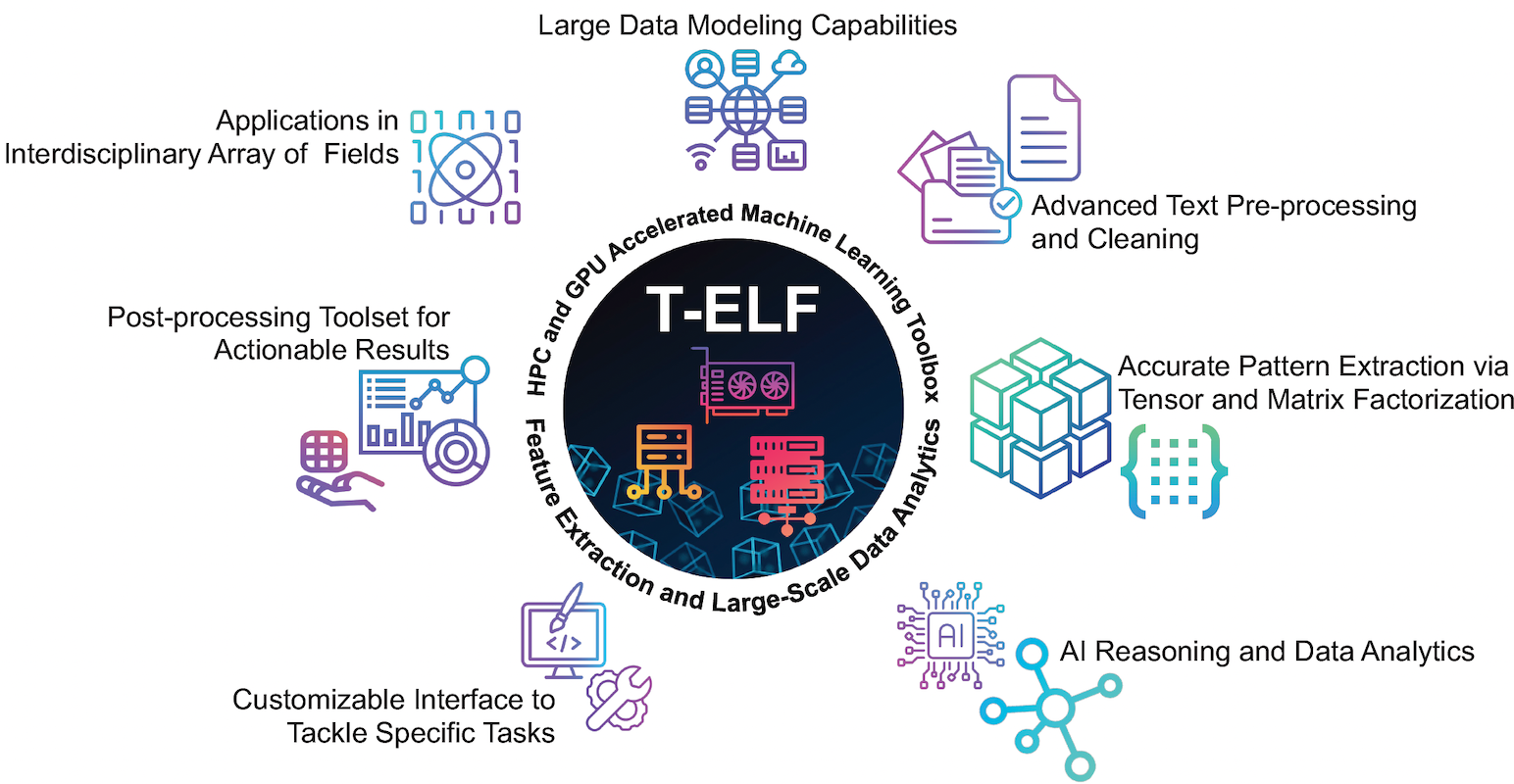
T-ELF
Tensor Extraction of Latent Features (T-ELF) is one of the machine learning software packages developed as part of the R&D 100 winning SmartTensors AI project at Los Alamos National Laboratory (LANL). T-ELF presents an array of customizable software solutions crafted for analysis of datasets.
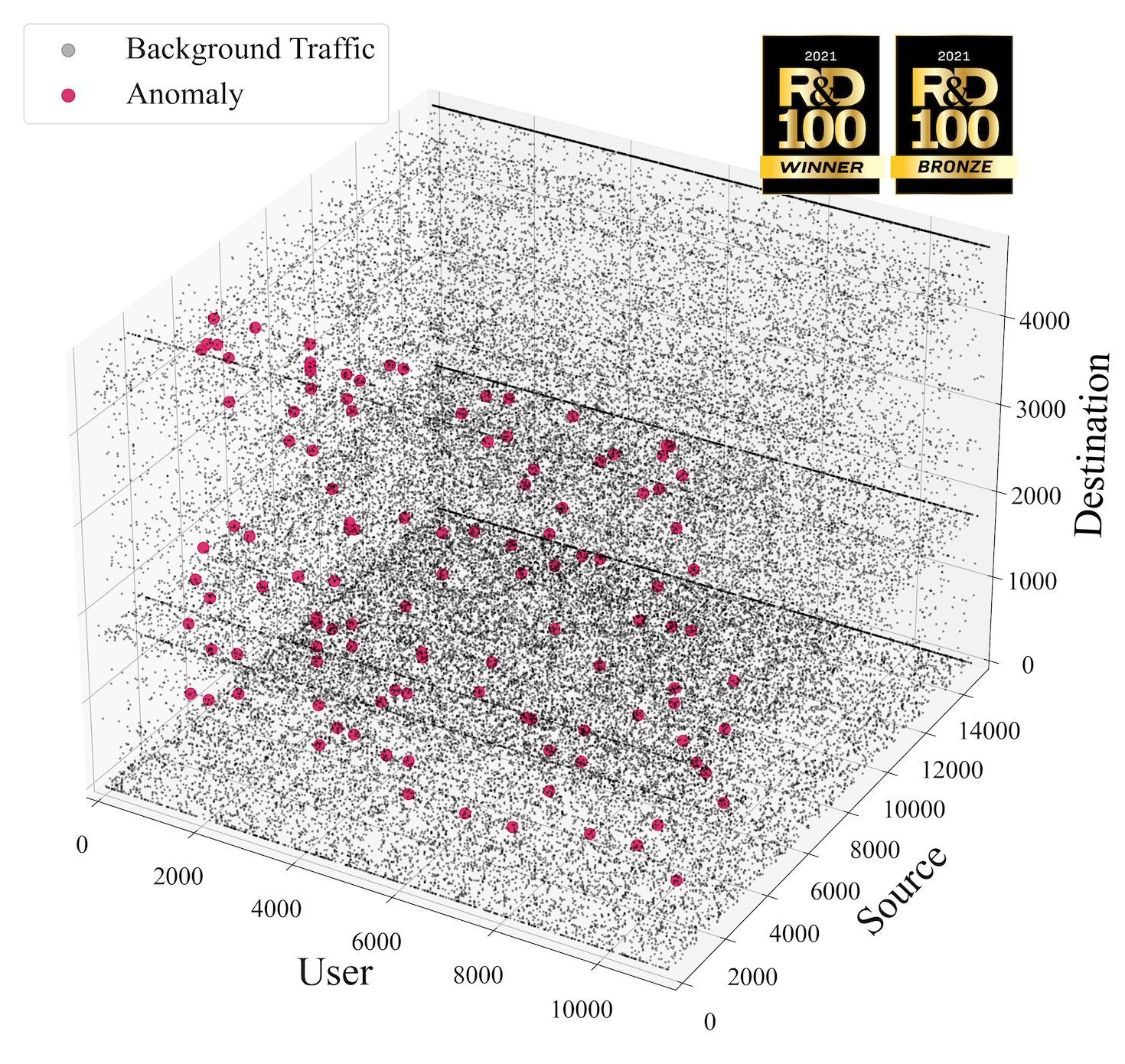
pyCP-APR
pyCP-APR is a Python library for tensor decomposition and anomaly detection that is developed as part of the R&D 100 award wining SmartTensors project. It is designed for the fast analysis of large datasets by accelerating computation speed using GPUs.
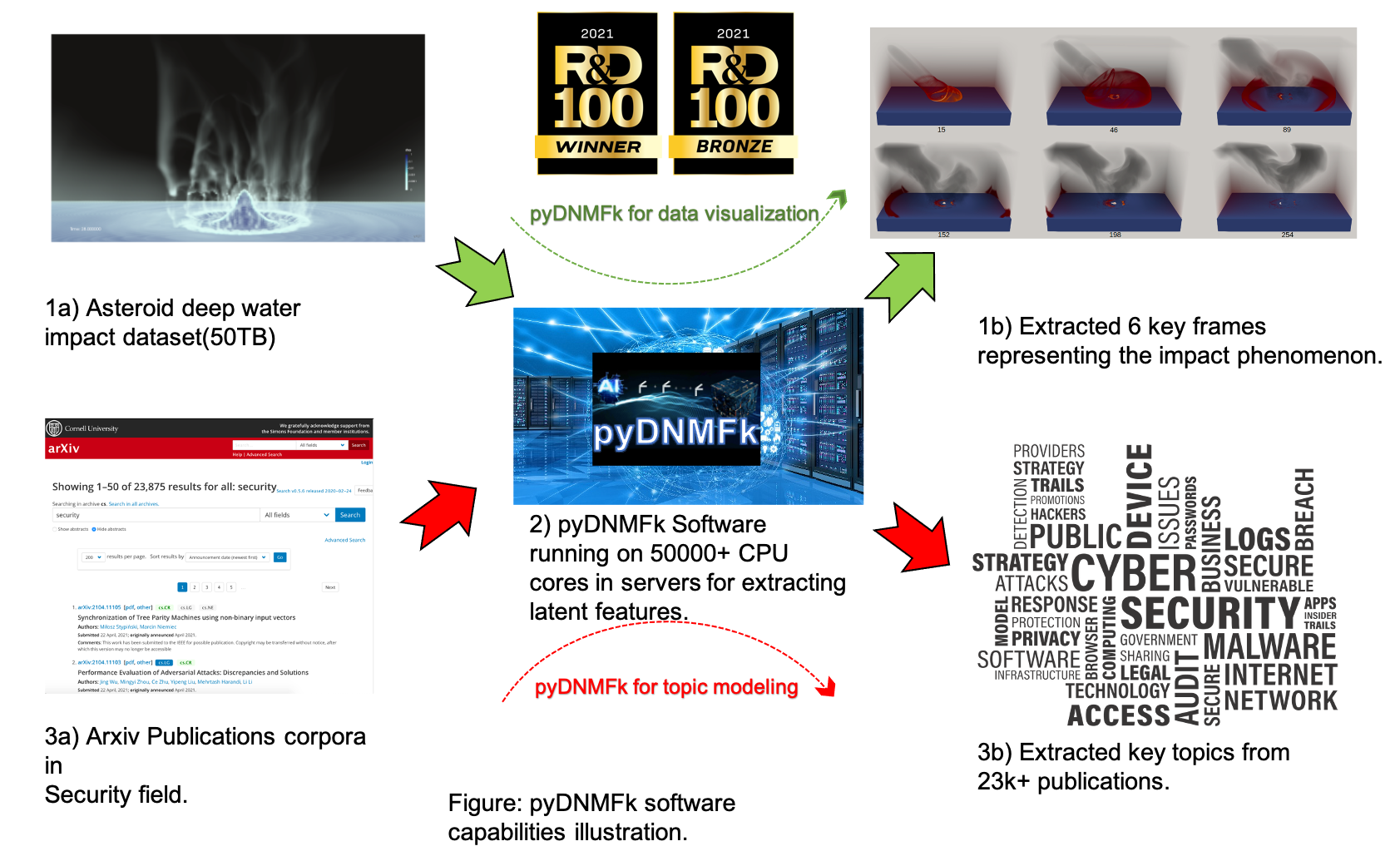
pyDNMFk
pyDNMFk is a software package for applying non-negative matrix factorization in a distributed fashion to large datasets. It has the ability to minimize the difference between reconstructed data and the original data through various norms (Frobenious, KL-divergence).
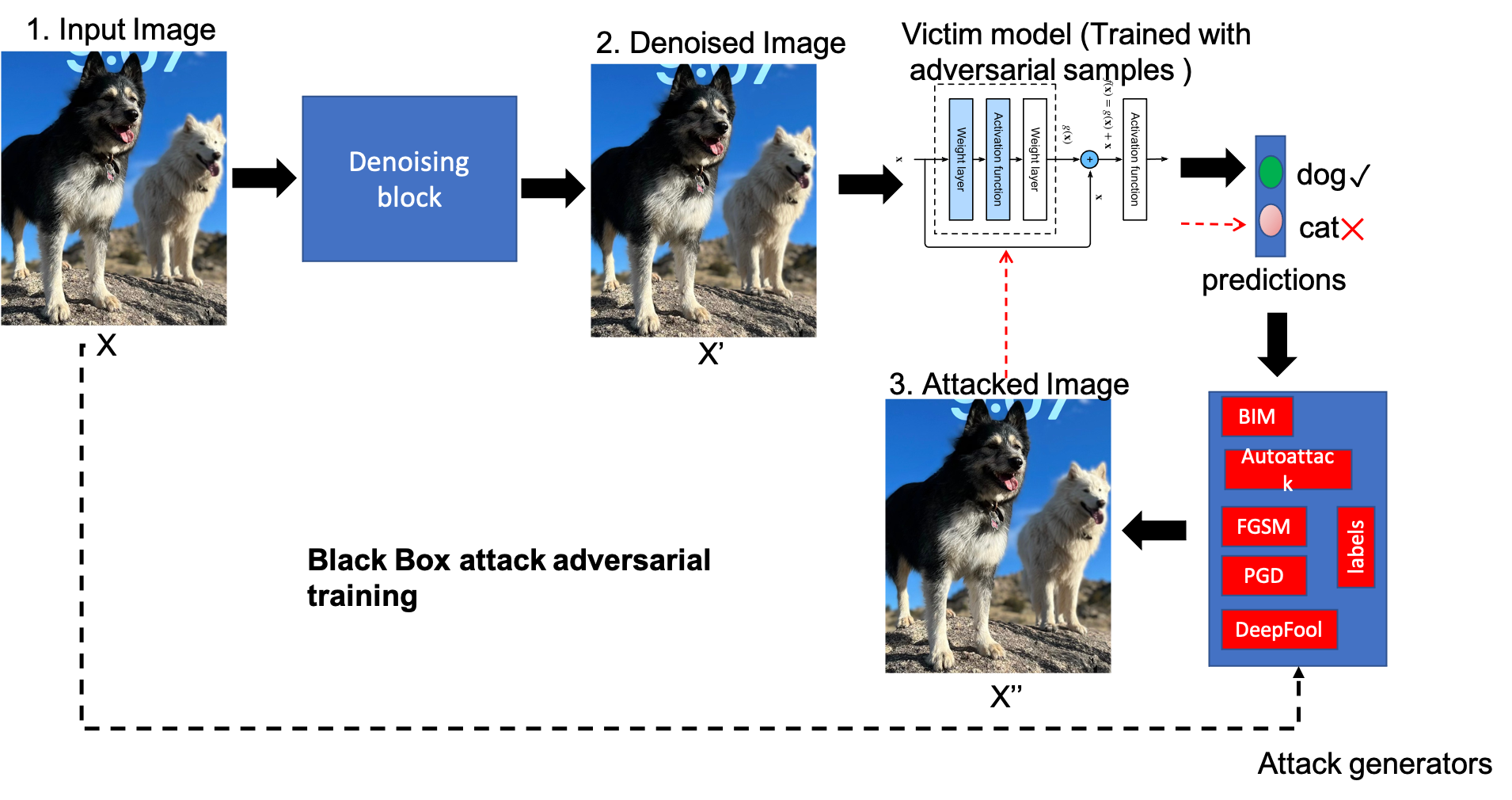
AdversarialTensors
Tensors-based framework for adversarial robustness. Library implements a variety of tensor factorization methods for defending Artificeal intelligence (AI) models against adversarial attacks.
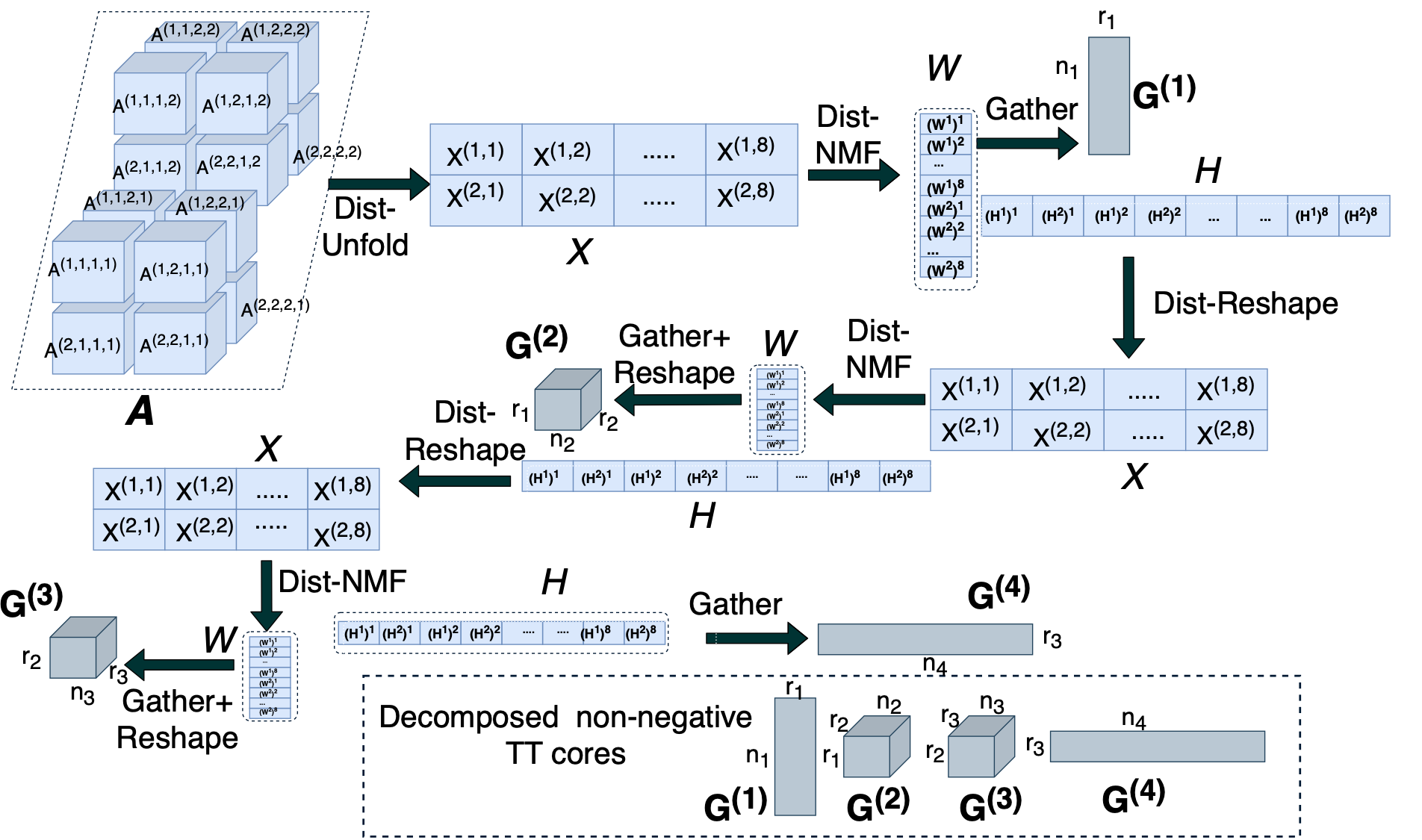
pyDNTNK
pyDNTNK is a software package for applying non-negative Hierarchical Tensor decompositions such as Tensor train and Hierarchical Tucker decompositons in a distributed fashion to large datasets. It is built on top of pyDNMFk.
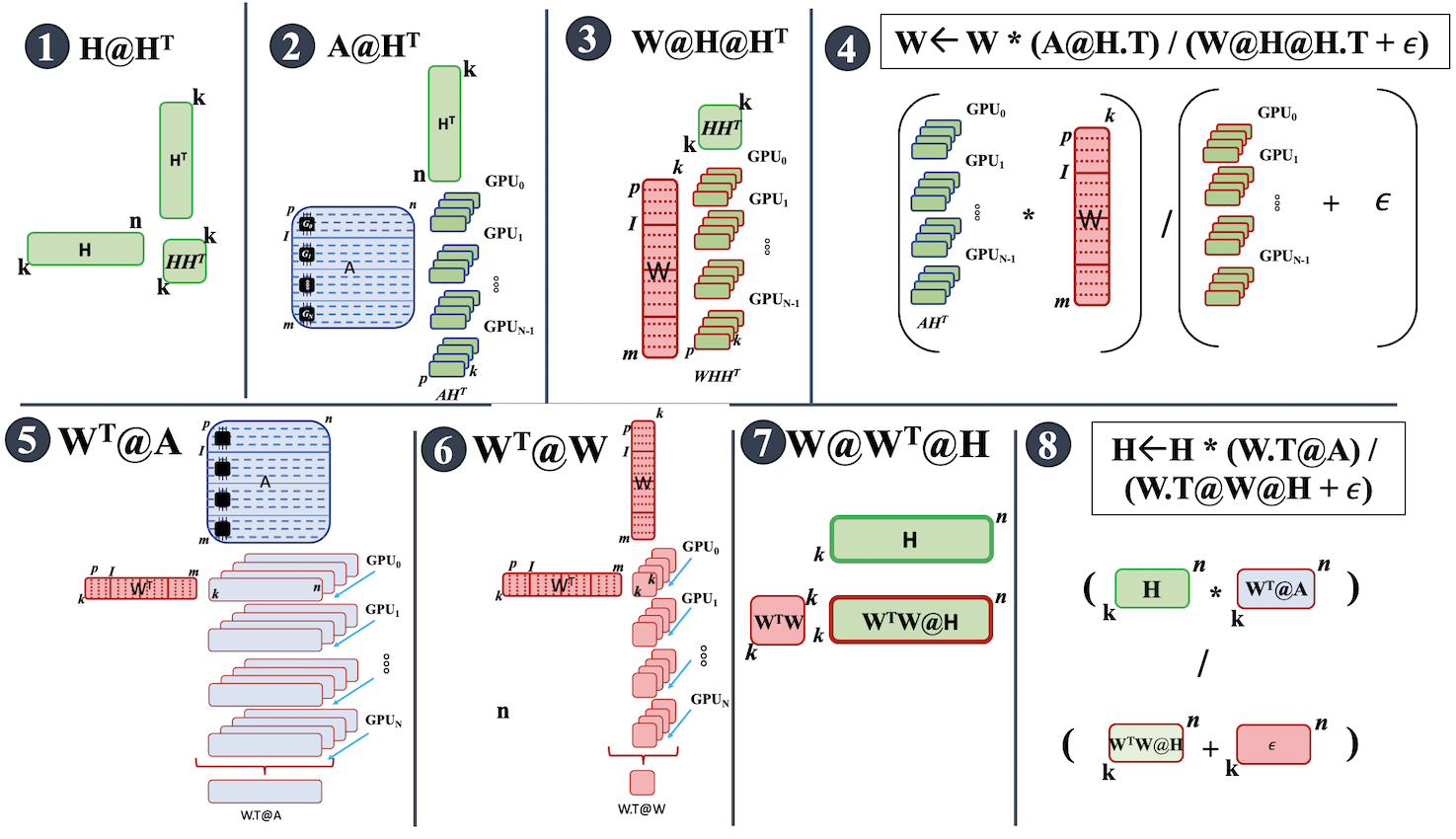
cuda-pyDNMFk
Cuda Python Distributed Non Negative Matrix Factorization with determination of hidden features. cuda-pyDNMFk is a dynamic software platform tailored for the decomposition of large datasets that surpass the limitations of in-memory processing.
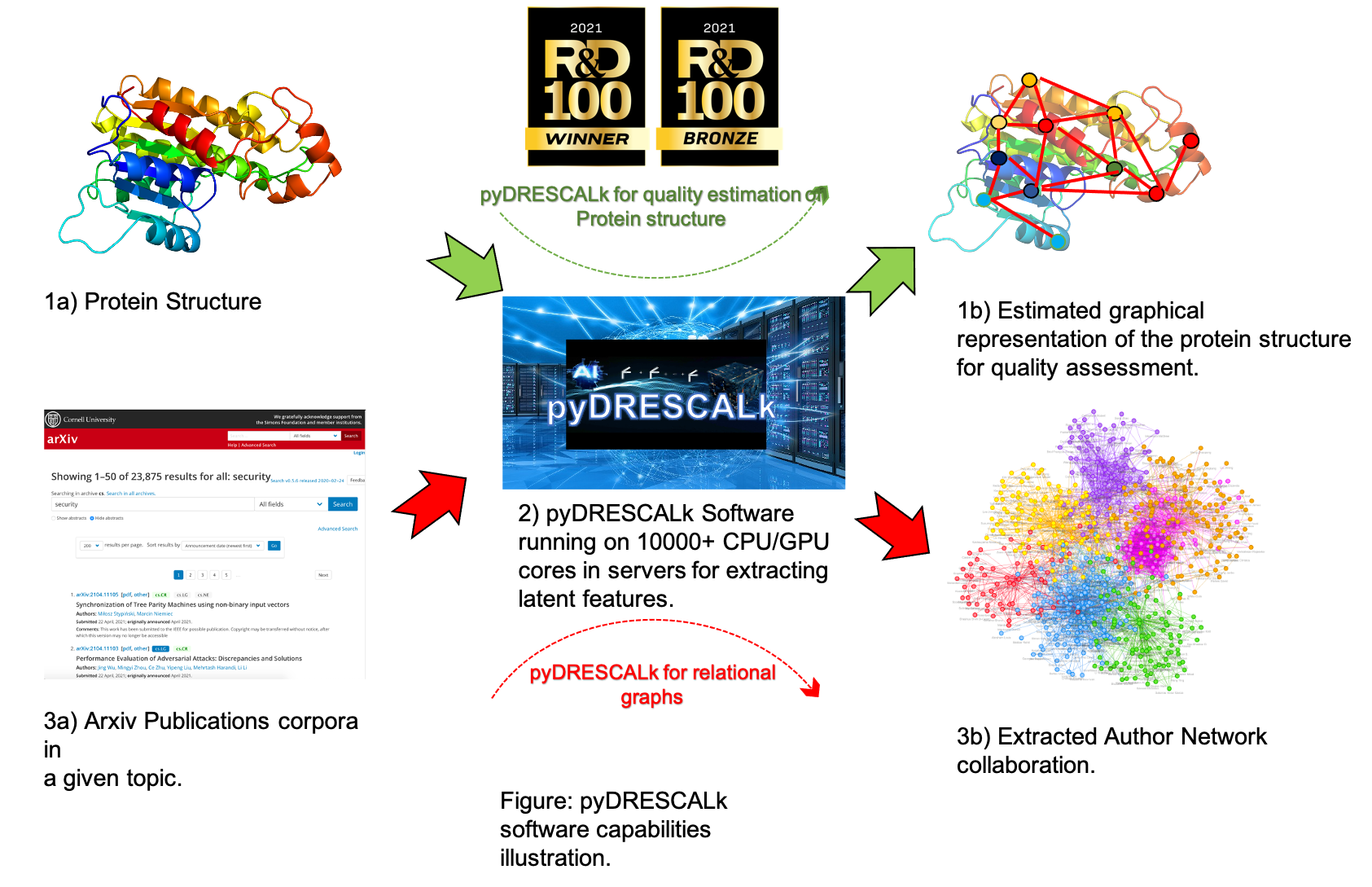
pyDRESCALk
pyDRESCALk is a software package for applying non-negative RESCAL decomposition in a distributed fashion to large datasets. It can be utilized for decomposing relational datasets.
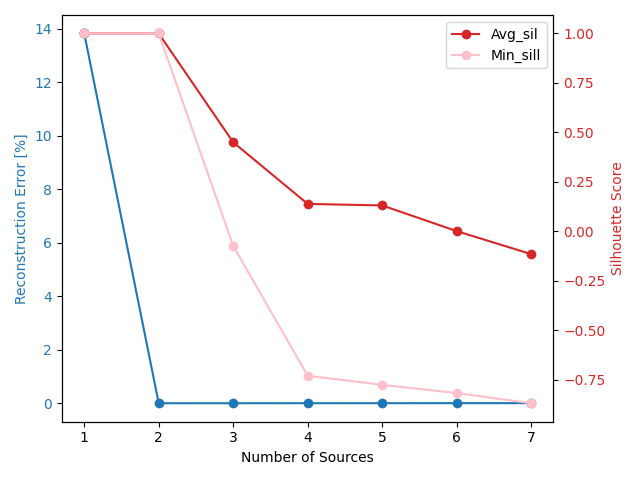
pyHNMFk
The identification of sources of advection-diffusion transport is based usually on solving complex ill-posed inverse models against the available state-variable data records. pyHNMFk synergistically performs decomposition of the recorded mixtures, finds the number of the unknown sources and uses the Green's function of advection-diffusion equation to identify their characteristics.
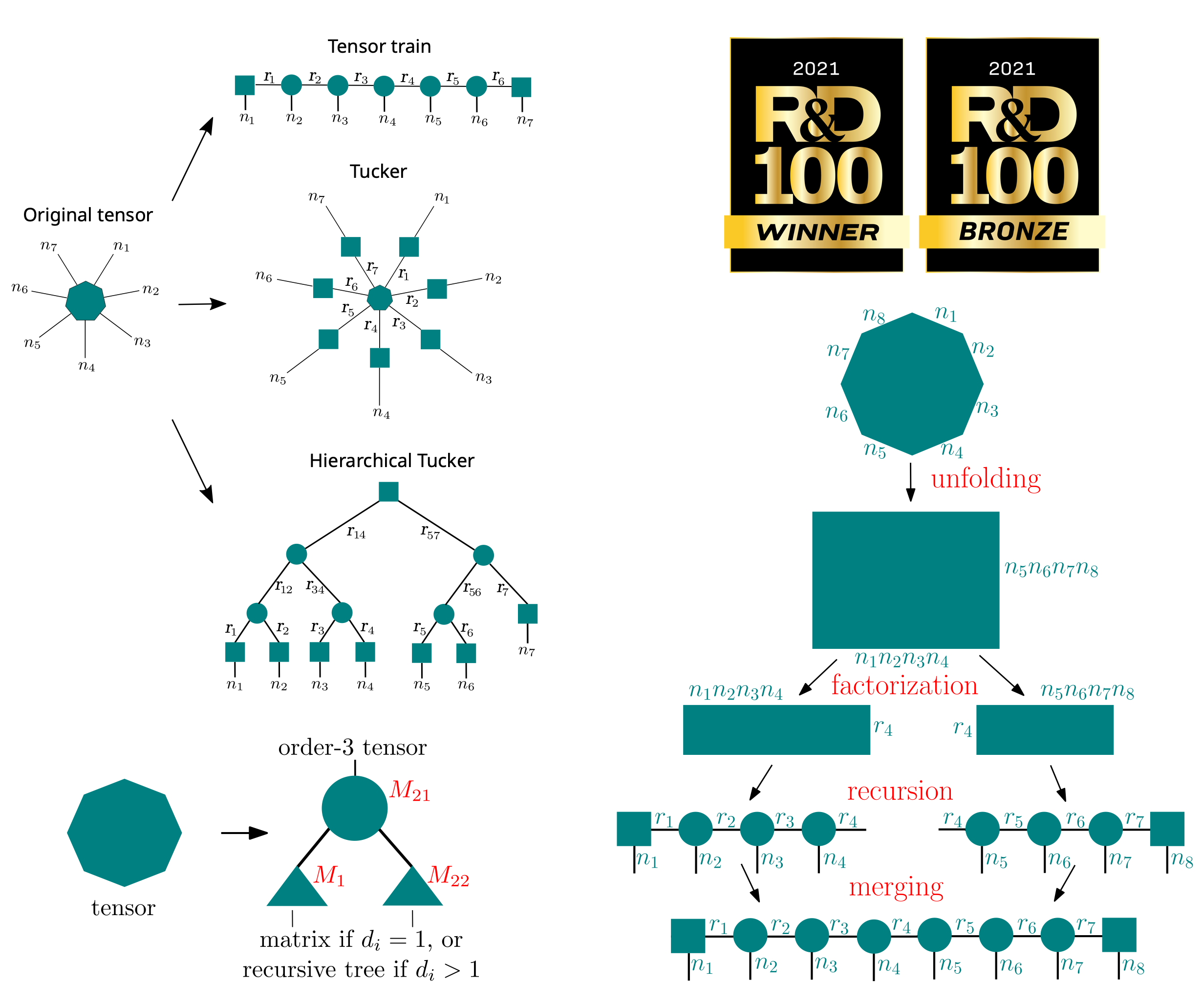
pyQBTNs
pyQBTNs is a Python library for boolean matrix and tensor factorization using D-Wave quantum annealers.

